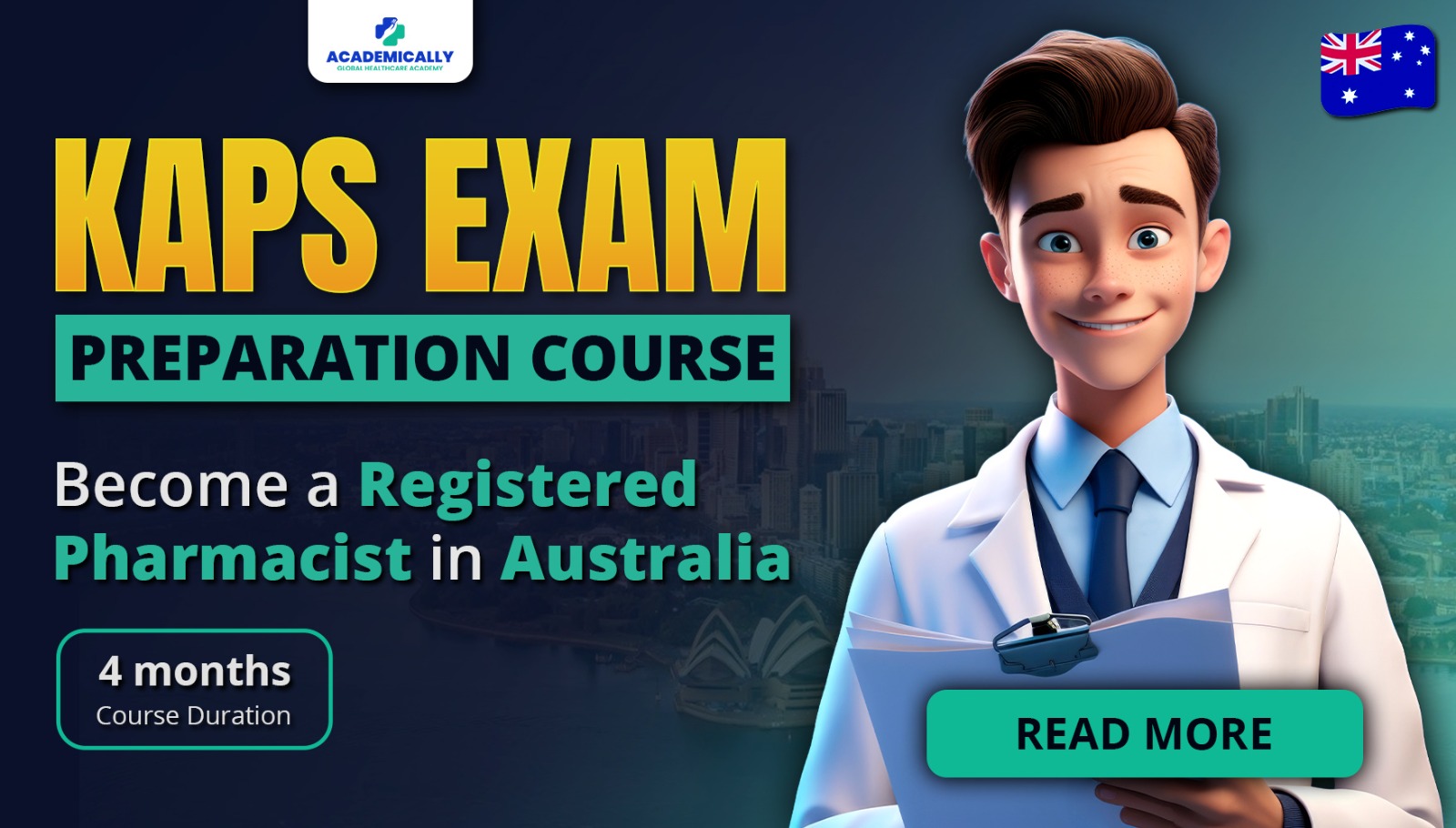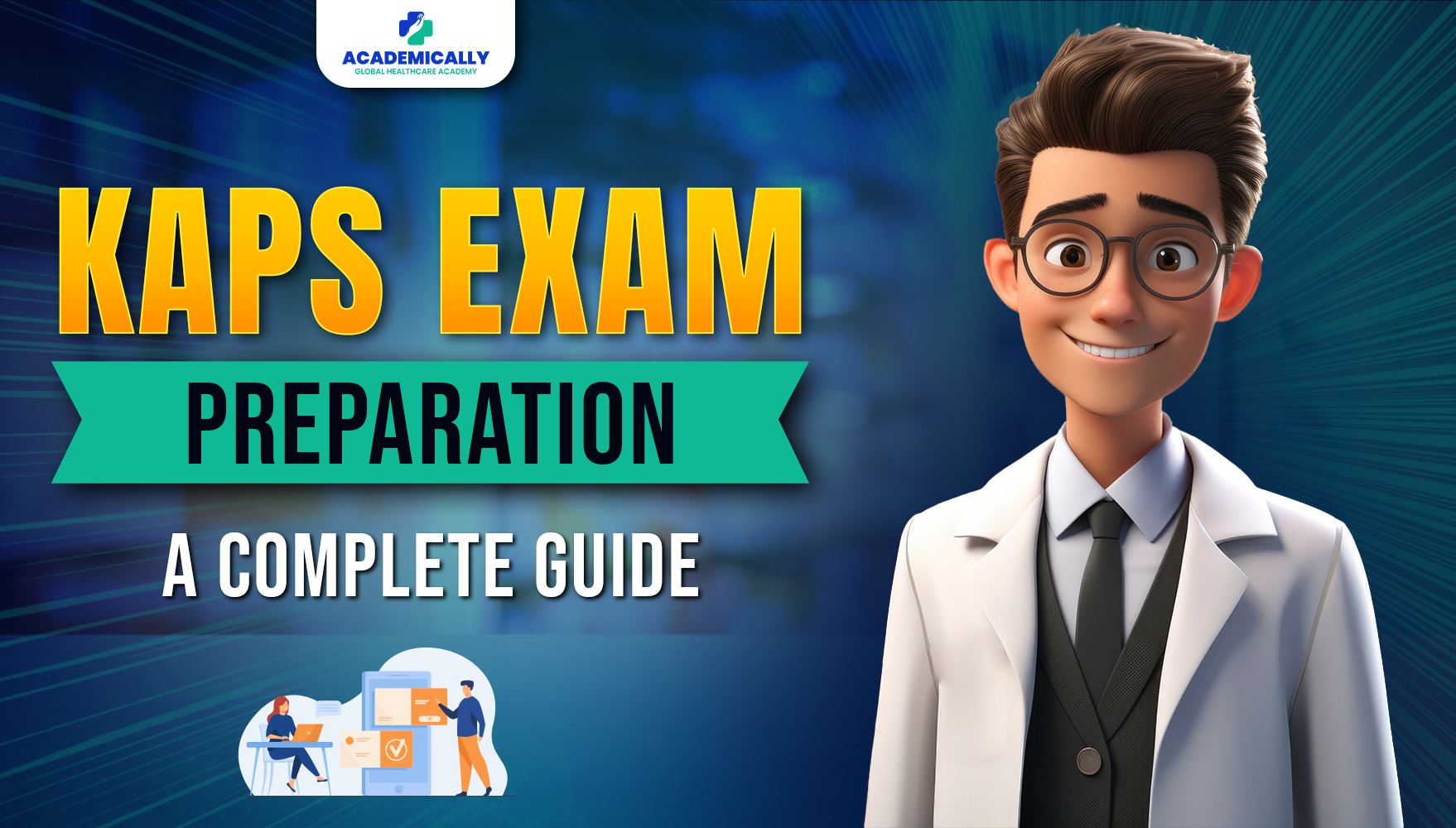Introduction
Pharmacists who wish to migrate to Australia and seek registration there might have heard of the KAPS exam. KAPS stands for the Knowledge Assessment of Pharmaceutical Science. This exam conducted by the Australian Pharmacy Council is the first step to be taken while seeking registration in Australia.
This rigorous examination evaluates the theoretical knowledge and competency of internationally qualified pharmacists, ensuring they meet the high standards required to become a pharmacist in Australia. Let us take a closer look at how the KAPS preparation works.

KAPS Examination
The KAPS exam is divided into two parts:
KAPS Part 1
This section evaluates candidates theoretical knowledge in various pharmaceutical sciences, including pharmaceutics, medicinal chemistry, pharmacology, pharmacotherapy, and pharmacy practice. It typically consists of multiple-choice questions (MCQs) designed to assess candidates understanding of foundational pharmacy concepts.
KAPS Part 2
The second part of the exam assesses candidates clinical skills, problem-solving abilities, and communication skills. It involves practical case-based scenarios that simulate real-world pharmacy practice situations. Candidates are required to analyse the scenarios, come up with appropriate solutions and communicate their recommendations effectively.
KAPS Exam Preparation Techniques
The KAPS examination requires thorough preparation, dedication, and great commitment to succeed. Here are a few things that would help you in your preparation journey.
Understand the Exam Format and Syllabus
Begin your preparation journey with a deep understanding of the exam format and syllabus for both Part 1 and Part 2. Review the topics covered in each section and identify areas where you may need to pay more attention and put in more effort.
Source High-Quality Study Materials
Make sure that you invest in study materials such as reference guides, textbooks, etc that are comprehensive, up-to-date, and of top quality. Utilise reputable resources to ensure you have access to accurate information.
Prepare a Study Plan
Draft a study plan that suits your needs specifically. It should be well-structured and include all the exam topics in a way that you can cover them systematically. Allocate sufficient time for each subject and set achievable study goals. A study plan will help you stay on top of things and sticking to them can avoid unwanted stress throughout your preparation.
Practice with Past Papers and Mock Tests
Practice is the key to success in the KAPS exam. Solve past papers and take mock tests regularly. Familiarising yourself with the exam pattern is highly essential to improve time management and to strengthen your knowledge.
Join Study Groups or Take up a Preparatory Course
It is ideal to join study groups or preparatory courses for the KAPS Exam so that you can interact with fellow candidates and experienced professionals. Engaging in discussions and sharing knowledge can enhance your understanding of complex topics and elevate your knowledge and confidence.
Review and Revise Regularly
Consistent revision is crucial to retain the information you have learned. Regularly review the subjects you have covered, especially those that you find difficult or even slightly challenging. Revise important concepts to ensure they are firmly ingrained in your memory.
Give special attention to Problem-Solving Skills
The second part of the KAPS exam involves case-based scenarios. It requires great problem-solving skills and critical thinking to tackle them. For this, you have to analyse the scenarios, consider various solutions and communicate your recommendations effectively.
Deal with Exam Anxiety
If you feel anxious as the exam date comes closer, you should acknowledge your anxiety and manage this exam-related stress by practising techniques that will relax you. No matter how difficult the time would be, always make it a priority to maintain your body in a healthy condition. Confidence in your preparation will help you perform better on the day of the exam.
Things to Remember
- Stay hydrated, well-fed, and well-rested to reduce stress and the chances of falling sick.
- Begin your preparations early on so that you can study well and avoid panic.
- Prepare yourself for this exam mentally and to improve your concentration, stay away from things that may distract you.
- Make sure that you take frequent, short breaks during your study sessions.
- Set realistic goals and work hard to achieve them.
- If you find studying certain areas difficult, studying with a friend or joining a study group can help you.
Conclusion
The KAPS exam is not just an assessment; it is an opportunity to demonstrate your expertise and dedication to providing pharmaceutical care of the highest standard in Australia. A well-structured study plan, extensive practice, usage of high-quality study materials, and familiarity with the exam pattern are the key ingredients to brew success in the KAPS exam. Remember, your dream of becoming a pharmacist in Australia is no longer a distant reality. It is much closer to you. Your hard work and sincerity will take you to places and you can build the best career in pharmacy.
Fill up this form for a free one on one counselling session.




